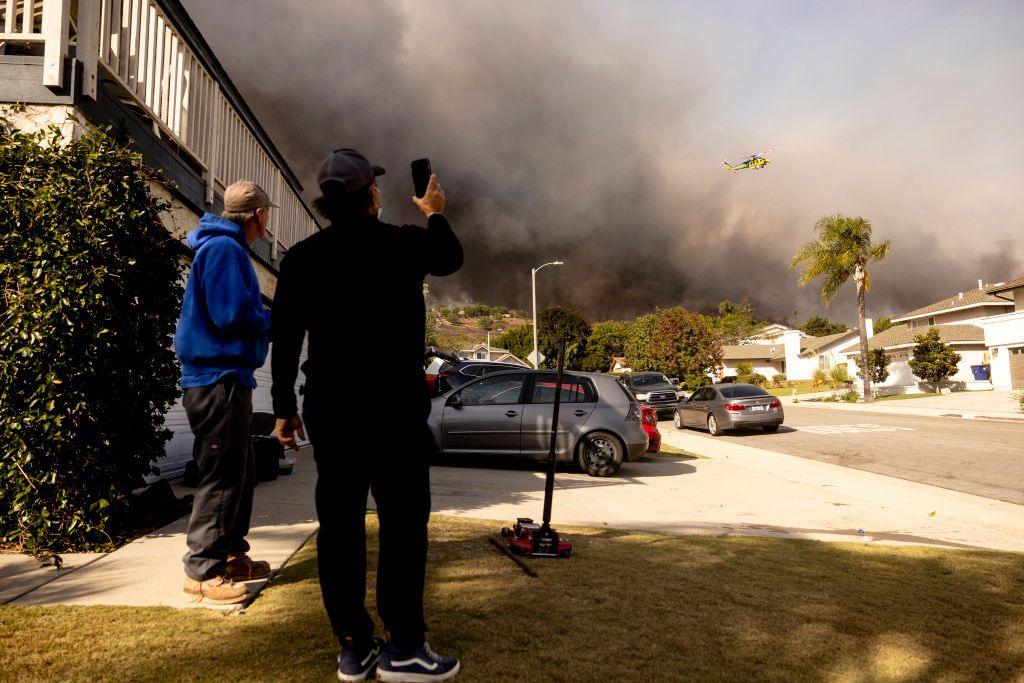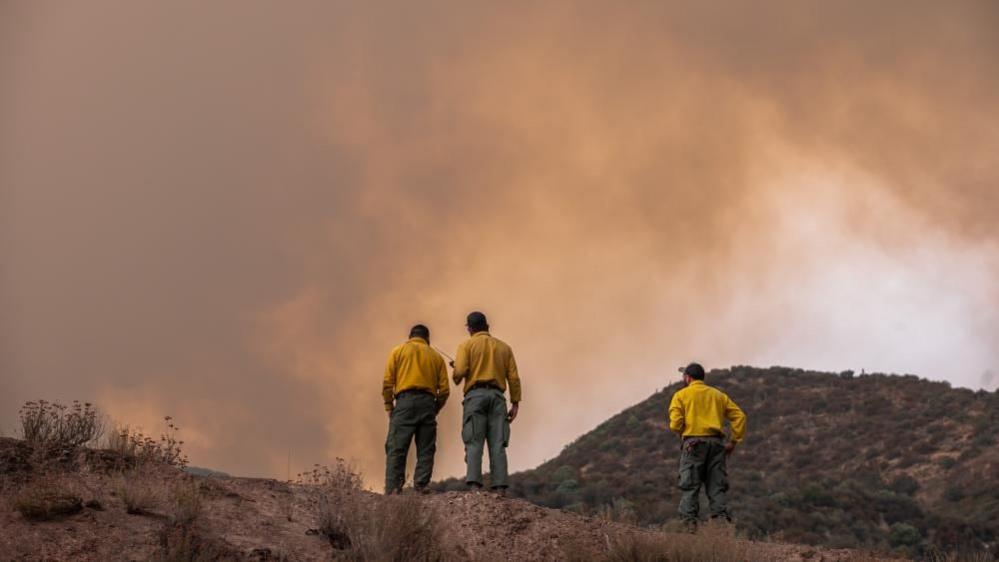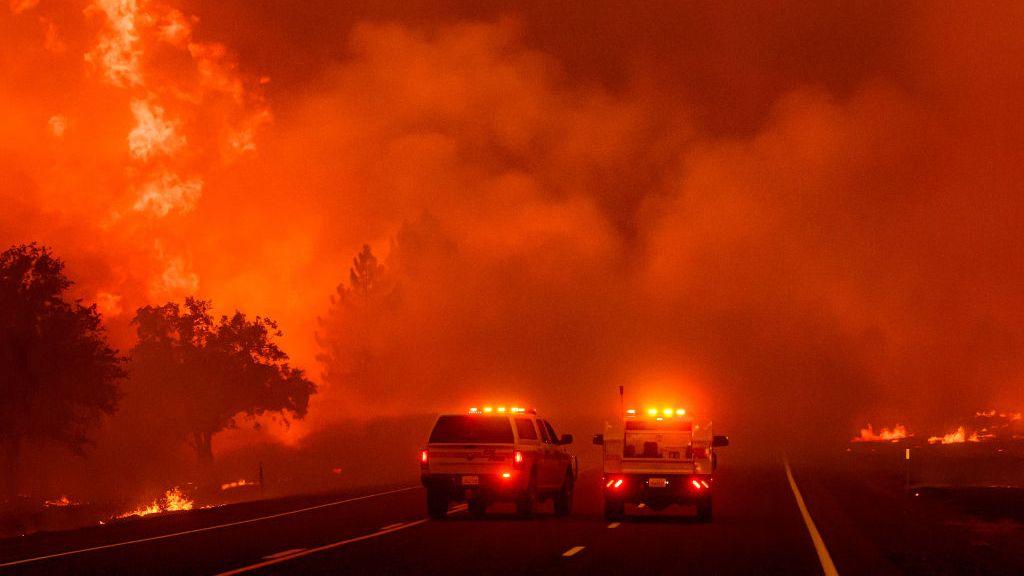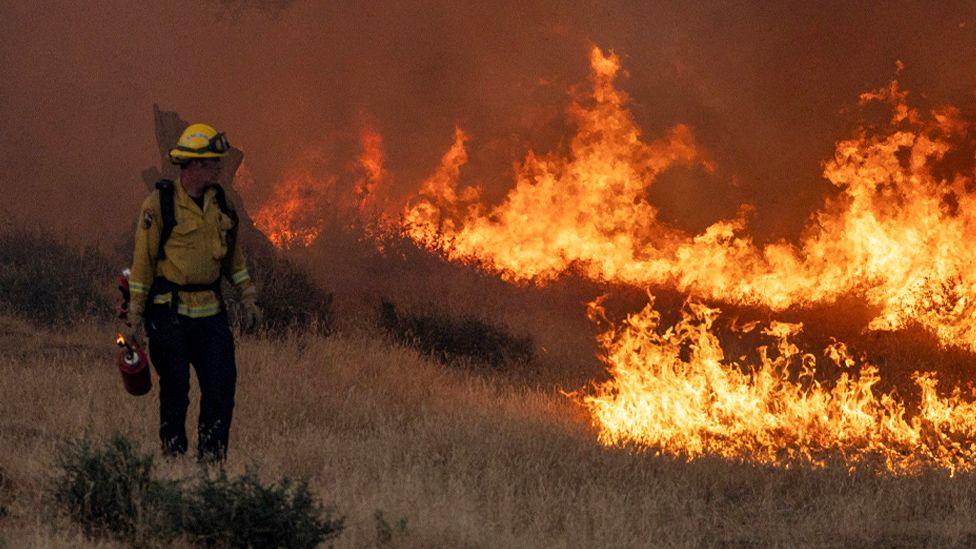California wildfire forces thousands to evacuate
Watch: Homes engulfed by flames as wildfires spread in California
- Published
Thousands of people have been ordered to evacuate a part of California that has been savaged by wildfire for a second day running.
The fast-moving wildfire was first reported near Moorpark, 40 miles north-west of Los Angeles, early on Wednesday and has been boosted by heavy winds.
California governor Gavin Newsom confirmed in a statement that more than 10,000 evacuation orders had been issued, while 3,500 homes and other structures were under threat and federal funds had been secured to help fight the fire.
The National Weather Service said winds were expected to decrease significantly by Thursday night, but warned that conditions for high fire danger would stay in effect for now.
Video footage and images show large plumes of smoke rising in the sky, covering entire neighbourhoods.
Ventura County fire chief Dustin Gardner said on Wednesday that the fire was moving "dangerously fast" and destroying everything in its path.
"Bushes are burning, grass is burning, hedgerows are burning, agricultural fields are burning and structures are burning," he said.
Fire officials also confirmed that two people suffered apparent smoke inhalation and were taken to hospitals on Wednesday. No firefighters reported significant injuries.
Officials in several southern Californian counties have meanwhile urged residents to watch out for fast-spreading blazes, power outages and downed trees.
The City of Ventura also posted on social media asking residents to limit their water use to ensure firefighters have enough water available to fight the blaze.
According to CBS, more than 20 schools in Ventura County will also be shut on Thursday.

The fire started during a Santa Ana wind event, featuring strong and dry winds that are sometimes referred to as devil winds.
Forecasters had reported gusts ranging from 70 to 80mph in some parts of Los Angeles County on Wednesday.
According to the Associated Press, the fire grew from just under 0.5 sq miles (about 1.2 sq km) to more than 16 sq miles (62 sq km) in just over five hours.
California is a state that is prone to wildfires. The amount of burned areas in the summer in northern and central California increased five times from 1996 to 2021 compared with the 24-year period before, which scientists attributed, external to human-caused climate change.
Not all wildfires can automatically be linked directly to climate change. The science is complicated and human factors, including how we manage land and forests, also contribute.
However, scientists say that climate change is making weather conditions that lead to wildfires, such as heat and drought, more likely.
Related topics
- Published11 September 2024

- Published28 July 2024

- Published6 July 2024
